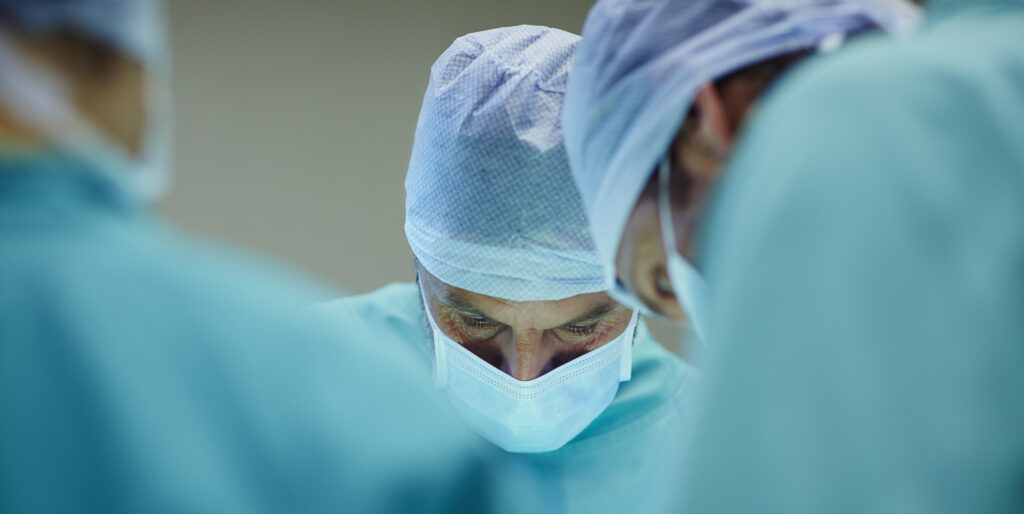If you or a loved one has advanced liver disease or liver failure, you know how severely it can impact your quality of life. Liver transplant may be an option that offers you a cure and a second chance at life.
WMCHealth’sLiver Transplant Program is one of the oldest and most established transplant centers in the country. Since the program began, our teams have performed over 1,100 adult and pediatric liver transplants.

As an academic medical center, WMCHealth prides itself on staying at the forefront of innovative, leading-edge liver transplant surgery techniques and treatments.
Our surgeons handle the most complex cases requiring expertise and precision. In addition to deceased donor transplants, we also offer living donor transplant and multiorgan transplant. In fact, our center ranks among the top 25% of U.S. transplant centers for multiorgan transplant volume since 1996.
Do I Need a Transplant?
End-stage liver disease, also known as liver failure, is a life-threatening disease that can be caused by several liver conditions. Liver transplant is not a first-line treatment. It is only used as a life-saving procedure. Liver transplant is a complex process with many variables to consider.
What to Expect During Your Visit to the Transplant Center
When you come to the Liver Transplant Program at WMCHealth, you will be seen by a group of specialists who will determine the best treatment option for you. Your transplant care team will lead you through each step of the evaluation and listing process. During your evaluation, you will be seen by a transplant surgeon, a transplant hepatologist, a coordinator, a social worker, and a nutritionist. Based on your medical history, the team will request specialty consultations and testing, such as:
- Blood tests: Blood tests are necessary to help find your best donor match to improve the chances that the donor liver will not be rejected.
- Diagnostic tests: These include tests, cardiac testing, imaging such as X-rays, ultrasound procedures, CT scans, pulmonary function tests (PFTs), cancer screening, and dental exams.
- Vaccinations: Vaccines decrease the chances of developing infections that can affect the success of your liver transplant.
- Psychological and social evaluation: Stress, financial issues, and support from family or significant others are some of the psychological and social issues that are considered.
National Liver Transplant Waiting List
If you are a candidate for liver transplant surgery, your transplant coordinator will let you know that you have been placed on the national waiting list for a new liver. You will also receive a letter confirming your placement on the list. During the waiting period for an organ, the team will follow you closely to ensure you remain well enough to accept an organ offer.
At WMCHealth, we realize that the time spent waiting for your transplant can be very stressful. It is normal to feel worried as you wait. But there are things you can do to help alleviate some of this stress and deal with your fears, such as:
- Talk about your concerns with your family or supportive friends.
- Ask your transplant social worker to recommend a counselor.
- Join a liver transplant support group (WMCHealth can connect you).
Please remember that you are not alone. Your WMCHealth liver transplant care team is always here to help you navigate the uncertainty of your waiting period.
Living Donor Liver Donation
In addition to getting listed on the national waiting list, you may also be a candidate to receive a living donor transplant. During a living donor transplant, a portion of a liver is removed from a living person and implanted in the recipient. To receive a liver transplant from a living donor, the donor must be healthy and have a matching blood type. The donor will also undergo an evaluation to ensure they are prepared for the procedure. Most living liver donors are close family members or friends of the liver transplant candidate.
Living donor liver transplant surgery helps cut down the time spent waiting for a donor liver, which decreases the chances of other health complications arising during the waiting period. It also often leads to fewer health complications in the recipient after the procedure. It is truly the best gift a person can give to someone they love. If you are interested in becoming a donor or want to learn more about the donation process, call 914.493.1990 or fill out this form. Or you can visit these websites: LiveOnNY.org, DonateLife.net, or UNOS.org.
